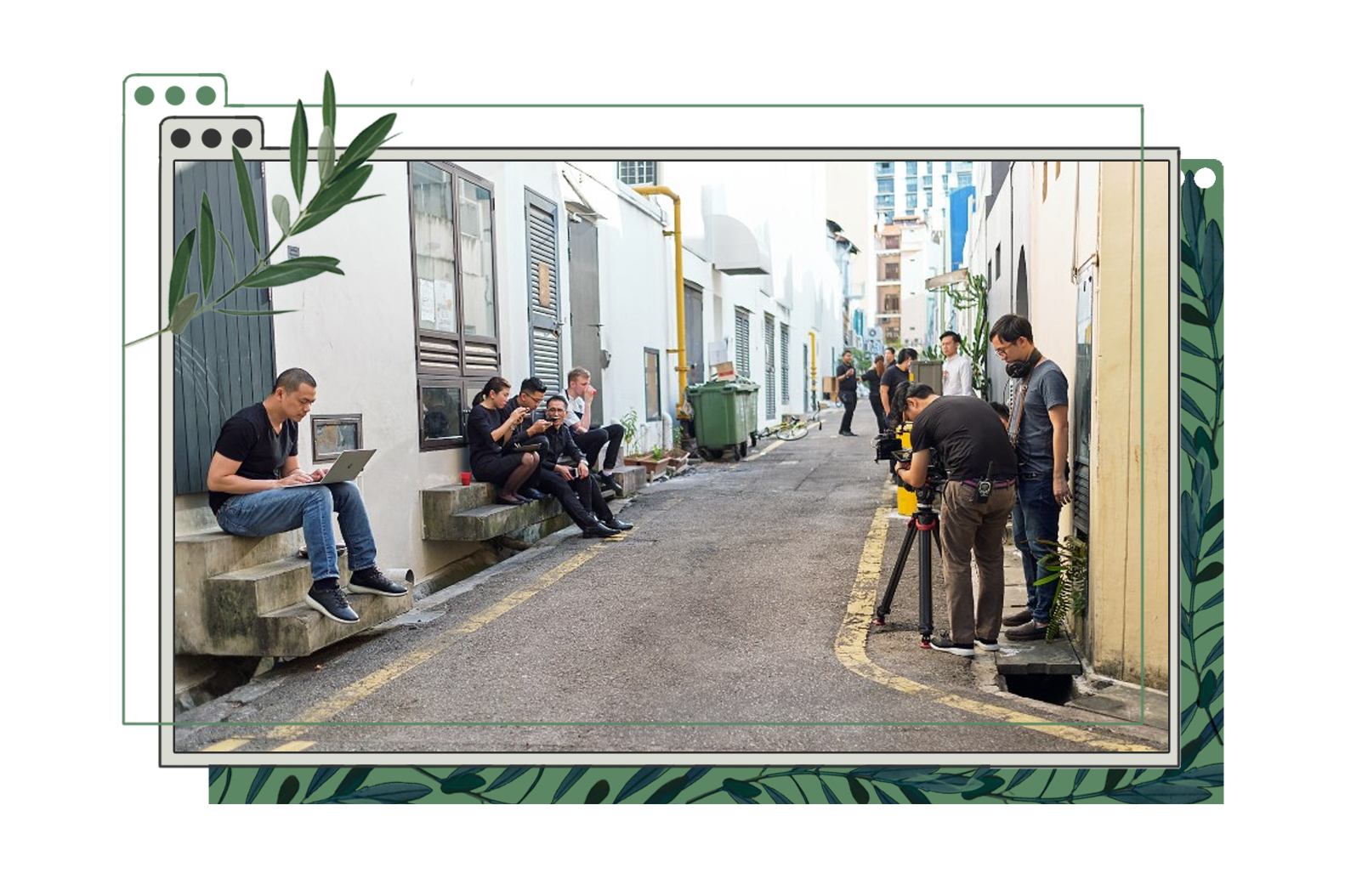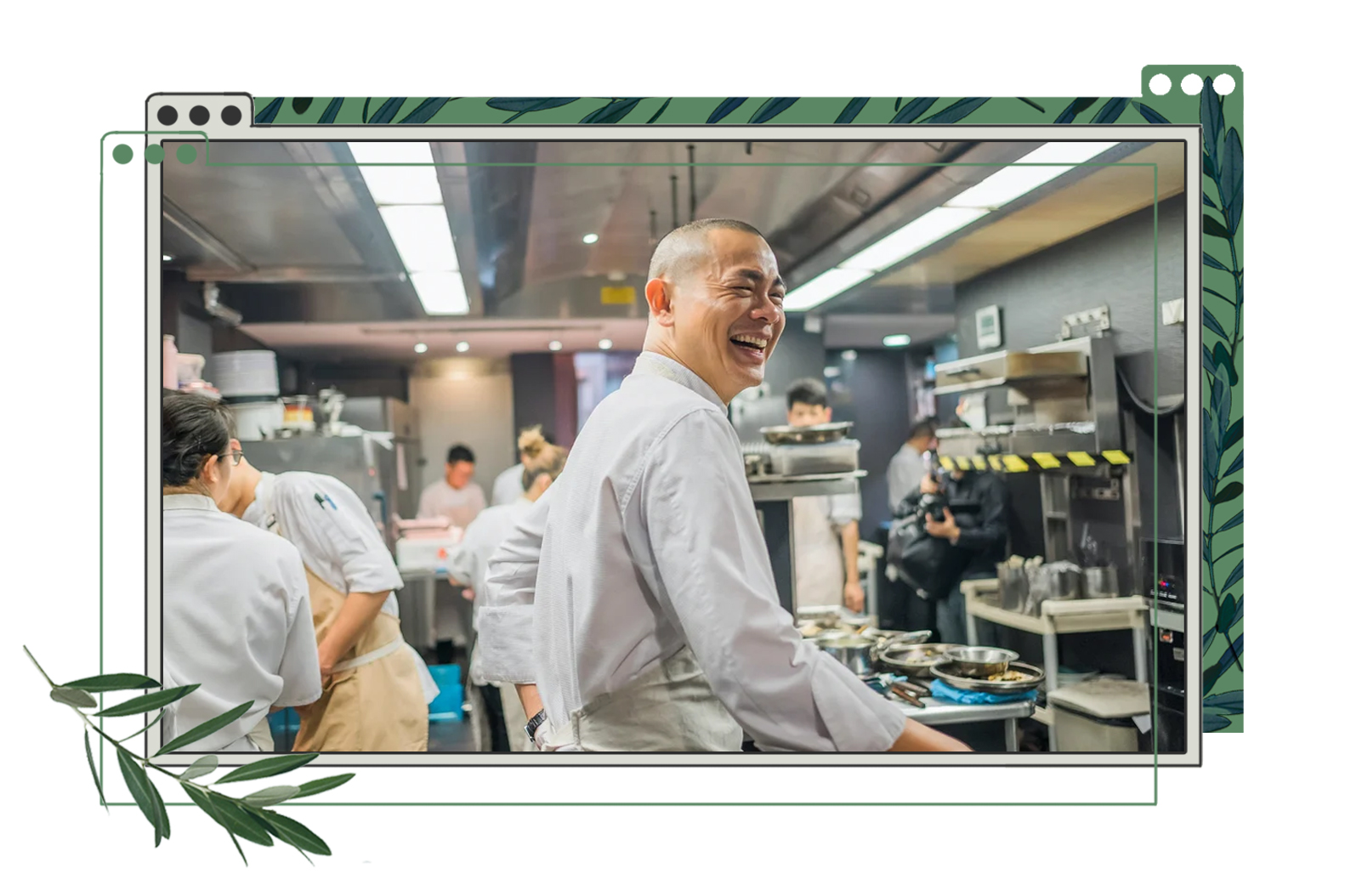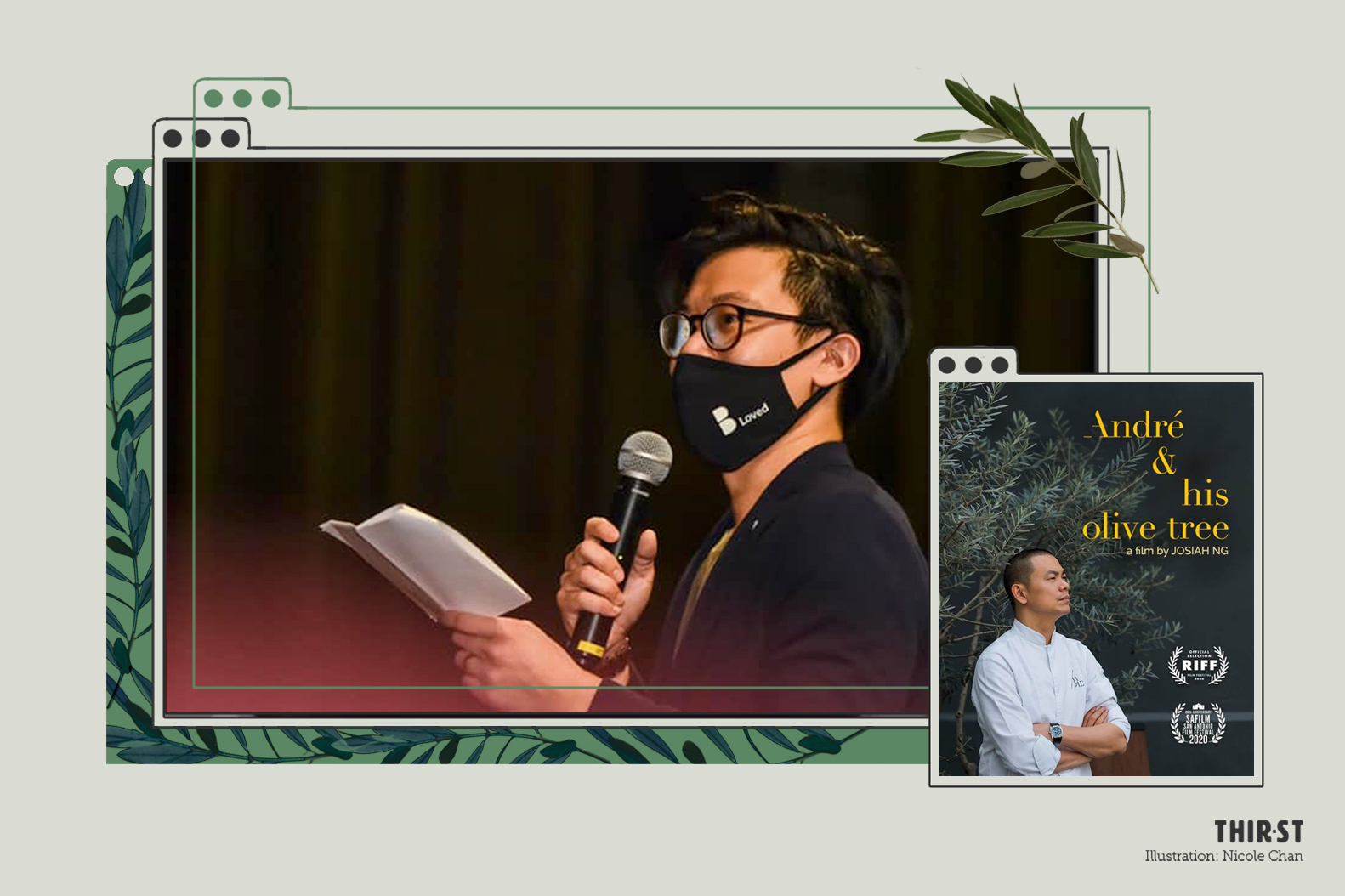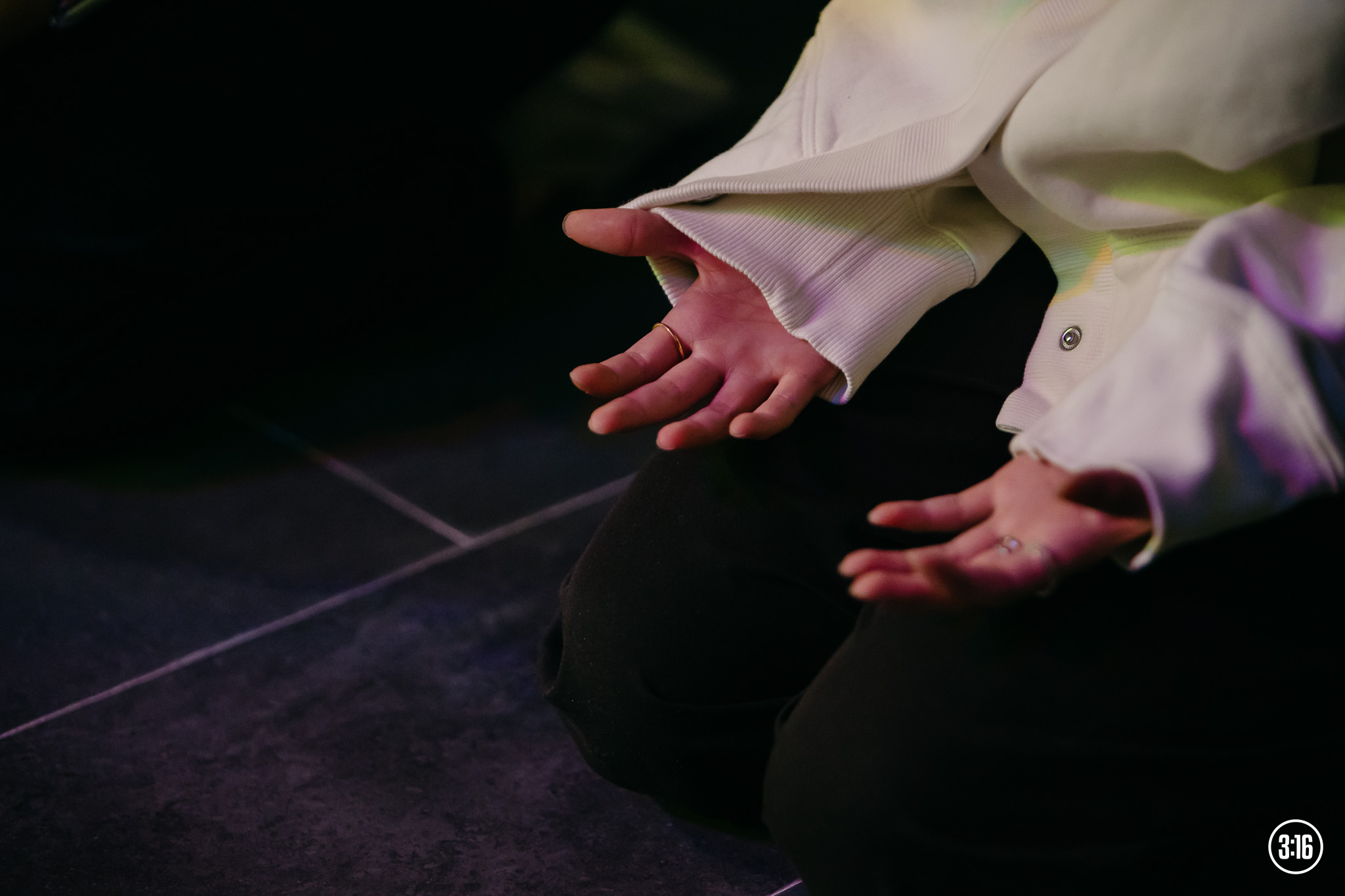“A victim of success and a product of failure.”
That was how local director Josiah Ng – who has won multiple film awards like the Ngee Ann Kongsi Gold Medal, Shaw Foundation Gold Medal, MDA Film Prize and Cathay Film Prize – described himself.
The 32-year-old recently released his latest film André and His Olive Tree which was lauded as Taiwan’s highest-grossing documentary in 2020. The film was also invited to participate in the 2020 Reykjavik International Film Festival and the 2020 San Antonio Film Festival.
Ironically, for a film that has raked in so many achievements, its main message is that there is so much more to life beyond our accomplishments.
The language of the next generation is in videos. If you can speak the language, then you can have a conversation with them. You can really touch them directly.
If all stories have a beginning, then this particular story begins right at the end.
André and His Olive Tree ushers viewers into the inside world of Taiwanese chef André Chiang from the moment he abruptly announced the closure of his eponymous restaurant in Singapore at its peak in 2017, returning their two Michelin stars.
At the time, the news shocked the culinary world. Josiah, too, was intrigued by the celebrity chef’s decision.
“This was a man who had achieved a certain recognition that a lot of people could only dream about,” he said. “So I was very curious about why he would give it all up and what his reasons were.”
That provided Josiah all the motivation he needed to tell Andre’s story.
A VICTIM OF SUCCESS
But where did Josiah’s penchant for storytelling come from? Growing up in Sunday School, Josiah saw how stories helped to emotionally connect people to God.
Enthralled by the power of a good story, he decided to join the Audio Visual Aid (AVA) club in secondary school which exposed him to filmmaking as a medium of storytelling.
“The language of the next generation is actually the media – it’s in the form of videos,” he said. “And I was brought to realise that if you can speak the language, then you can have a conversation with them, then you can really touch them directly.
Believing that a certain “fluency” was needed in the language of filmmaking, Josiah opted to enrol in film school.
It was there in Ngee Ann Polytechnic’s School of Film & Media Studies that Josiah began to receive scholarships as he won multiple awards for his creations, eventually becoming the graduate student of the year.

As someone who had not done well in secondary school, the results and recognition in polytechnic surprised Josiah.
But the pursuit of success began to consume him.
“I became too addicted to that whole sense of needing to achieve awards,” he admitted. “It kind of affirmed that whole ‘Asian sensibility’.
“You need to have good results, you need to make sure that you bring honour to your family name and get awards and all that.”
Soon, the weight of his initial success grew too heavy on Josiah. Burdened by the perpetual expectation of having to deliver his next masterpiece, he decided to give up on filmmaking altogether when he went into National Service.
“I questioned my worth and started wondering whether I was worthy of the awards and the recognition,” he recounted. “Like, is this going to be my peak? Is this going to be something that’s going to go down from here?”
It was a sense of loss and purposelessness that drove Josiah down a depressive spiral. At the lowest point of his life, he didn’t even want to touch a camera anymore.
A PRODUCT OF FAILURE
But Josiah would not stay away from filmmaking for long. Describing it as something he couldn’t run away from, he eventually picked up his camera one Chinese New Year to document some simple family moments.
Then, six months later, one of his relatives committed suicide.
“My family was grieving and we were trying to get over it and understand why,” shared Josiah. “And I found myself at a place where I could only express myself through a film.”
Old footage that had been left untouched were brought to life as Josiah pieced together a family tribute.
Through that film, Josiah’s extended family experienced something of a closure as they appreciated the beauty of the life that was lost.
“It made me recognise that my talent – this blessing that God has given me – isn’t for myself,” he continued. “I was too focused on myself and my insecurities. I was insecure about what I didn’t achieve.”
This realisation helped shift his focus from himself to others, taking away the pressure to perform that had been on his shoulders.
Ever since then, Josiah decided to use his filmmaking talent to bless others. One of his early efforts you may recognise was a viral initiative called “While You Were Sleeping” from his university days.
“I was being told stories that the next generation of Singaporeans is actually very selfish,” he related, sharing how books were stolen from the library so that people couldn’t get an A.
“We only look out for ourselves to make sure that we are top of the game cause it’s a dog eat dog world,” he echoed.
But wanting to reject such notions, Josiah came up with an idea to bless napping students with snacks and an encouraging note, and turned it into a social film.
The movement even went on to other countries as people were inspired to do the same for their campuses. It reaffirmed Josiah’s belief that “our talents are bigger than ourselves”.
GOING BACK TO THE ROOTS
It doesn’t mean that Josiah has it all figured out though. He confessed that he is still on a journey of learning what it means to hold loosely to success.
After all, success – not failure – is something that we all need to be cautious about.
While many people can handle failures, not a lot can handle success well, he reminded, highlighting his pitfall all those years ago.
But to Josiah, Chef André was someone who could handle success.
As shown in the film, known for his OCD tendencies and perfectionistic nature, the enigmatic restaurateur travelled to France at a young age of 15 to study culinary arts.
There, he worked his way up to become head chef at a Michelin 3-star restaurant before starting his own place in Singapore.
And after eight years of success, Chef André decided to shut down his restaurant, even giving back the two highly coveted Michelin stars.

Chef André’s bold decision to close shop inspired Josiah greatly: “I thought that this was a story not just for me to explore but also for a lot of people to hear.
“I can imagine that there’s a lot of other people as well who struggle with this whole sense of ‘What if I don’t have awards or don’t do well? Or if I’m not recognised in my industry?’
“What exactly is it that’s important when it comes to doing well?”
The answer to Josiah is not about selfishness but selflessness.
Josiah explained that, in a sense, this is where the symbolism of the olive tree comes in in the movie.
In the film, the olive tree represents where Chef André came from. It was something that reminded him of his roots and how he started from the bottom with guidance from his mentors when he went to France.
30 years down the road, Chef André’s decision to close his restaurant was made in tandem with the decision to move back to Taiwan to build up the fine dining scene in his birth country.
“Chef André has a quote in the film where he said that it’s not about André any more, it’s about André’s brigade. It’s about whoever is willing to learn from him,” Josiah elaborated.
“And that’s why in terms of his talents, he has rejected the fact that it’s about him. He’s rejected the fact that it’s about his awards.”

PLANTING OUR SEEDS
If you ask Josiah, his “olive tree” would be his childhood bedroom wall. As a kid, he mapped out his three big dreams on the wall.
- To be a children’s pastor
- To keep making great films that share kingdom values
- To start a foundation
However, while man dreams dreams, Josiah believes that it is God who directs our steps.
“I’m still trying to see what is the best possible steps to impact the next generation. Is my ministry from the pulpit or is my ministry in another platform? I don’t know yet,” he confessed.
What’s important for the 32-year-old, however, is to keep the personal connection to God and to continually ask Him what’s next.
Josiah shared that, at least for now, God has directed him to spread kingdom values through his films.
While man dreams dreams, it is God who directs our steps.
He also offered a piece of advice: don’t worry too much about your “olive trees” if you have yet to find it because it creates the unnecessary burden of not knowing what you should be doing in life.
Instead, be faithful with what you have.
“I think it’s not about the olive tree, it’s about the seed that you plant,” Josiah concluded. “Instead of trying to focus on what’s my olive tree, I think the focus should really be on what is the seed that I can plant.”
And while everyone’s olive trees may look different, I think that’s definitely a leaf we can all take from lives like André and Josiah’s.
“André & His Olive Tree” is currently showing at GV cinemas and at The Projector. So if you’re gonna watch a movie soon, why not be a legend and support local filmmakers? 🙂
- What is your “olive tree”?
- What do your “seeds” look like?
- How might you plant them in your life?









